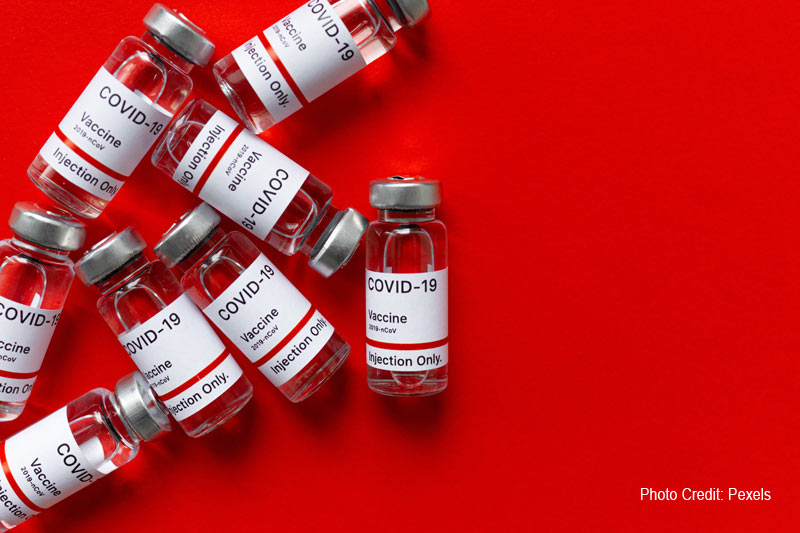How to Determine the Validity of COVID-19 Cards Upon Mandating in the Workplace

With the COVID-19 pandemic raging on after more than two years since the first case likely occurred, vaccination rates are increasing. Despite widespread acceptance, many U.S. workers are still reluctant to get the vaccination. However, employers have the right to implement mandatory vaccination programs as a way to ensure workplace safety and protect their customers and clients from potential exposure.
Guidance on Mandatory Vaccination Programs
The Equal Employment Opportunity Commission (EEOC) has provided guidance that states that these programs are not generally prohibited under federal anti-discrimination laws. There are exceptions allowed with mandatory vaccination programs, such as disability accommodations and religious exemptions.
President Bidenhas issued a COVID-19 Action Plan that includes a rule that employers with over 100 employees ensure their team is vaccinated or test them weekly*. Additionally, there are other concerns that employers should address, such as time considerations for vaccinations, on-site administration concerns, and worker’s compensation issues.
Determining Validity of Vaccination Cards
However, one big concern that is emerging is determining the validity of COVID-19 vaccination cards. Fraudulent vaccine cards are becoming an increasing concern as vaccine resisters recognize the growing need for these cards to attend large events, travel, and even work. U.S. Customs and Border Protection has seized more than 120 packages filled with thousands of counterfeit COVID-19 vaccination cards in recent weeks. Though these cards violate the law, some individuals believe they can use them to skirt regulations, including employer-sponsored mandatory vaccine programs.
These cards have been found in all areas of the country. In addition, they are often advertised on e-commerce and social media sites. Some savvy employees are even making homemade versions of vaccine cards. For these reasons, it is no surprise that employers are seeing an increase in vaccine card fraud cases in the workplace.
To combat this fraud, employers are encouraged to remind employees that forging federal government seals, such as those found on the official vaccination cards for the US Centers for Disease Control and Prevention (CDC), is illegal. As such, there can be stiff penalties for this type of violation. Violations can incur punishments of up to $5,000 in fines and five years imprisonment. On top of federal regulations, many state laws prohibit this type of forgery and have corresponding state punishments. Because of the pervasive nature of the problem, many states are considering legislation that will increase the penalties for fraudulent COVID-19 vaccine cards—at the end of the day, presenting a fake card as legitimate can be a public health concern. Conveying this message in the workplace is one way to discourage employees from presenting a false vaccination card.
Strategies for Identifying Fake Vaccination Cards
Many employers will still face potentially fraudulent cards despite all attempts at discouraging this activity. The Society for Human Resource Management (SHRM) offers several strategies for identifying fake vaccination cards, including:
- Keep an eye out for missing information that would be included on legitimate vaccination cards. Examples commonly include the absence of the vaccine manufacturer lot number, the date of administration, and the identification of where and who administered the vaccine.
- Look for misspellings. Many of the fraudulent cards obtained by U.S. Customs and Border Protection featured misspellings, so any misspelling is a huge red flag that the card is a fake.
- Look for inconsistent dates. Depending upon the type of vaccine administered, there is often an interval between the first and second doses (if a second is needed) and any booster doses. Verify that these dates make sense.
- If an unfamiliar manufacturer or provider is listed on the card, it may be a clue that requires additional research to determine the validity.
- Verify that the governmental logos featured on the card are accurate and free of errors.
- Analyze the thickness of the card. Legitimate vaccination cards are thicker than regular paper, and many fraudulent ones have the thickness of paper rather than cardstock.
- Look at the alignment of the card. Many fraudulent cards are cut with scissors or a large paper cutter rather than an industrial machine. For this reason, they may appear skewed.
- Look for handwriting for stickers. Legitimate cards are often printed, then completed with handwriting or stickers by the administering clinic when the vaccine is given. A fully printed card is a clue that it may be a fake.
- Confirm the name and birth date exactly match the individual’s information on file.
Vaccine cards with any of these traits may be fake, and it is worth doing more research and/or alerting authorities. For information about proper protocols related to mandatory vaccination programs, contact CA HR Services today.
*This portion of the Action Plan is still with the 6th Circuit Court as of 12/13/2021.
